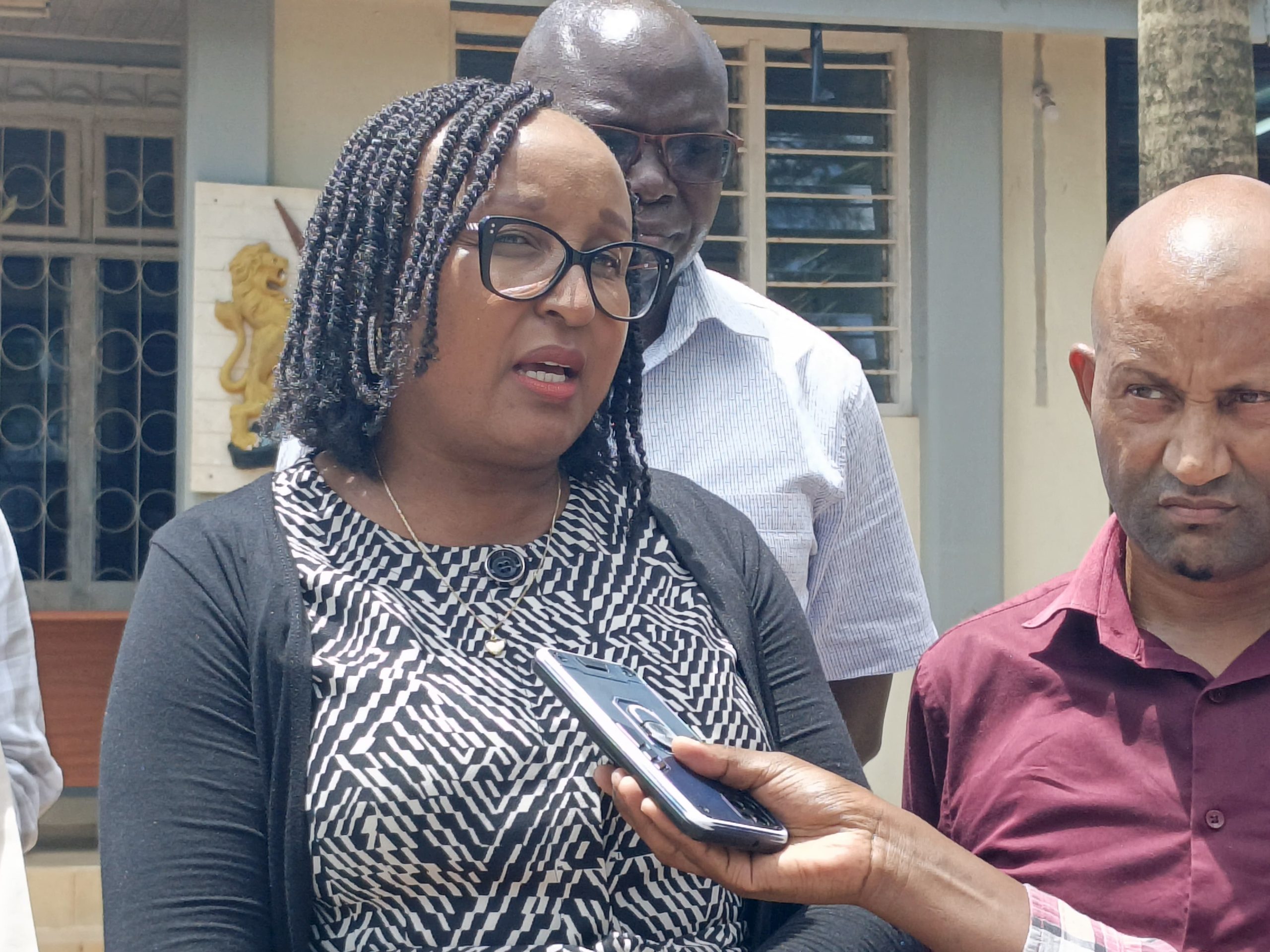The Ethics and Anti-Corruption Commission (EACC) has intensified civic education targeting youth in Vocational Training Colleges as part of its broader effort to combat corruption and promote integrity across the country.
The commission is conducting a week-long sensitization campaign in collaboration with county governments to empower young people with ethical values and awareness about their role in the fight against graft.
Speaking during the anti-graft civic education exercise at Kwale Headquarters in Matuga Sub-County on Monday, EACC Deputy Director, Education and Public Awareness, Dr. Emily Mworia, said the civic education initiative focuses on equipping youth with knowledge on transparency, accountability, and responsible leadership.
“The youth make up about 75 percent of Kenya’s population. If we succeed in shaping their mindset early, we will have taken a major step toward building a corruption-free generation,” said Dr. Mworia.
She emphasized that prevention through education remains the commission’s strongest line of defense, adding that creating awareness among young people helps curb corrupt behavior before it takes root.
ALSO READ:
The civic education forums are being held in Vocational Training Institutions, open-air markets, and public gatherings to deepen understanding of citizens’ rights and responsibilities in promoting integrity.
Dr. Mworia described corruption as a disease that has deeply infiltrated Kenyan society, warning that both the giver and receiver of bribes are equally culpable under the law.
The commission’s outreach program also aims to promote good governance, transparency, and ethical leadership at the grassroots level through the newly established Corruption Prevention Committees in counties.
Matuga Deputy County Commissioner Frida Kawira lauded the approach, saying it shifts the fight against graft from enforcement to education and collective responsibility.
“Many people, both knowingly and unknowingly, have been promoting corruption, sometimes out of ignorance or lack of information,” Kawira said.
She said civic education will not only inform citizens about different forms of corruption but also encourage them to demand free and fair public services.
Kawira further noted that the government’s shift to digital transactions through the e-Citizen platform is helping enhance transparency, reduce cash handling, and curb corruption in public offices.
By Mwajabe Omar
You can also follow our social media pages on Twitter: Education News KE and Facebook: Education News Newspaper for timely updates.
>>> Click here to stay up-to-date with trending regional stories
>>> Click here to read more informed opinions on the country’s education landscape






